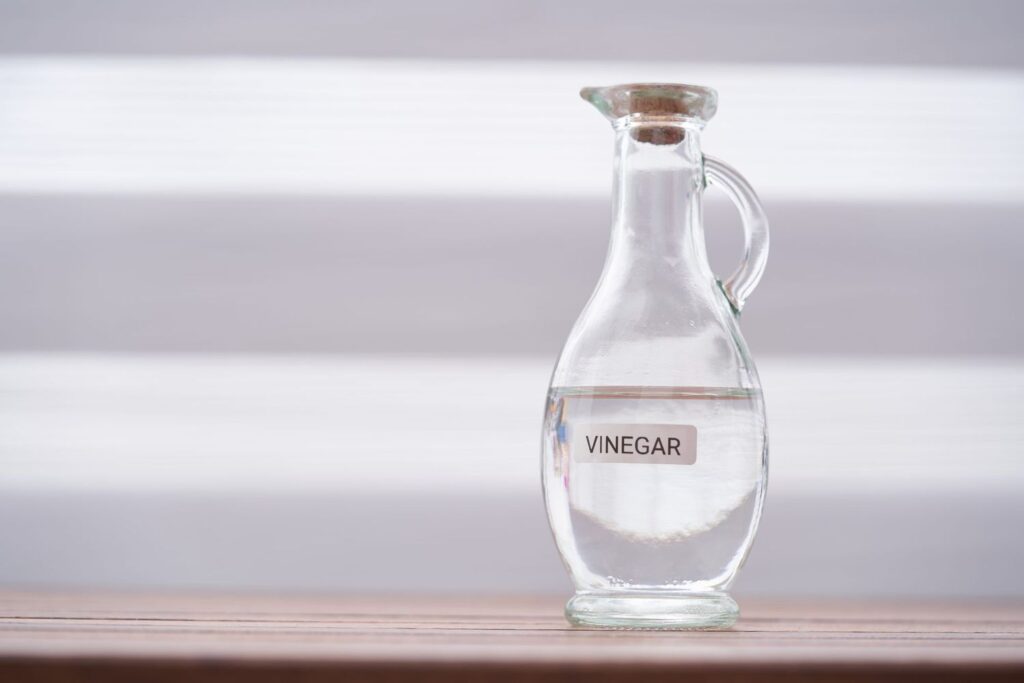
hadith number 1 curry of the Messenger
‘Aayeshah Radiyallahu ‘Anha says: “Rasulullah Sallallahu ‘Alayhi Wasallam once said: ‘What a
nice curry vinegar is”‘.
Commentary
The reason being there is not much trouble in it. Bread can easily be eaten with it. It is always easily available. It also keeps away formalities. Besides one lives in this world for a little while.
Vinegar has many benefits in it. It is an antidote for poison. It stops phlegm and gall. It helps
digest food, kills the worms of the stomach and creates a good appetite.
Due to its cold effect, it may not be good for some people. But it surely is a good curry which is obtained easily. In whatever way it is praised, its full benefits cannot be emphasised.
It is stated in a hadith that Sayyidina Rasulullah Sallallahu ‘Alayhi Wasallam ate it and said: ‘What a wonderful curry it is’.
In another hadith it is stated that Sayyidina Rasulullah Sallallahu ‘Alayhi Wasallam made du’aa for barakah in it and said:
“It was the curry of the previous Ambiyaa also’. In one hadith it is stated, ‘The house that has vinegar in it, will not be in need’ i.e. That house will not be in need of curry. These narrations have been mentioned in the Jam ‘ule Wasaa-il from Ibn Maajah
hadith number 2
Zahdam Al-Jarmi RA.says that we were present in the assembly of abu Musa Ash’ari
Radiyallahu ‘Anhu. Fowl meat was served for food. A, person from among those present, moved back. Abu Musa Radiyalahu ‘Anhu asked him the reason (for doing so).
He replied ‘I had seen the fowl eat something (dirty) so I swore an oath that I wil not eat it’. Abu Musa Radiyallahu ‘Anhu said: ‘In that case, I had seen Rasulullah Sallallahu ‘Alayhi Wasallam eat the meat of a fowl’ (come and partake of it without fear. If it was not permissible or disliked, how did Sayyidina Rasulullah Sallallahu ‘Alayhi Wasallam eat it).
hadith number 3
Safeena Radiyallahu ‘Anhu says: “I ate the meat of Hubaa-raa with Rasulullah Sallallahu ‘Alayhi Wasallam”.
hadith number 4
Abu Usayd Radiyallahu ‘Anhu says. “Rasululah Sallallahu ‘Alayhi Wasallam said: ‘Use olive oil
in eating and for rubbing (on the body), for it is from a mubaarak (blessed) tree”‘.
Commentary
The blessedness of this tree has been mentioned in the Qur-aan in the aayah “. . . from a blessed tree, an olive neither of the East nor of the West, . . . ” -Suralt An Nur, 35.
The ‘ulama have mentioned different reasons for its blessedness. Some say it is mostly grown in Syria and the earth of Syria is blessed because seventy prophets were sent to it.
Some say it is blessed because of its many benefits. Abu Nu’aym says:
‘It has a cure for seventy diseases of which one is leprosy’. Sayyidina Ibn ‘Abbaas Radiyallahu ‘Anhu says:
‘Every part of the olive is beneficial.
The oil is used for burning and cooking. It is also used for tanning. Its wood is used for firewood. The ash of the olive is -especially good for washing silk’. It is said that the olive tree has a long life. It bears fruit after forty years and has a life span of a thousand years. It’s numerous benefits are mentioned in the books of tibb.
hadith number 5
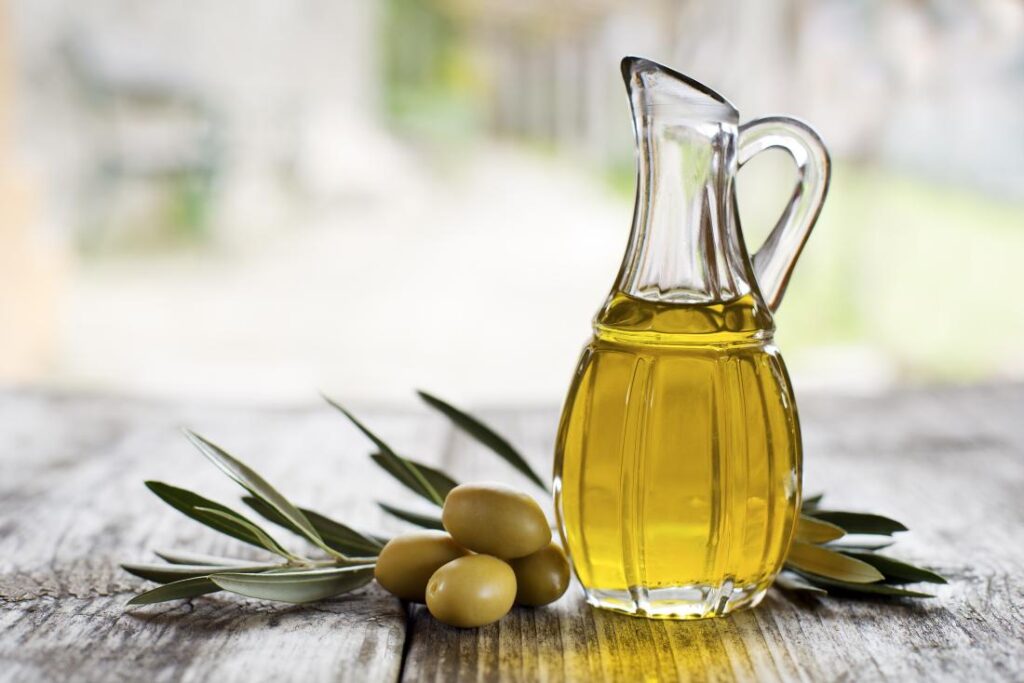
It is related from ‘Umar Radiyallahu ‘Anhu that Rasulullah Sallallahu Aayhi Wasallam said: “Use olive oil in cooking and rubbing (on the body) because it is from a mubaarak tree”.
hadith number 6
Anas bin Maalik Radiyallahu ‘Anhu says: “Rasulullah Sallallahu ‘Alayhi Wasallam loved gourd
(dubbaa-dodhi-kadu). Once food -was presented to Rasulullah Sallallahu’Alayhi Wasallam or he attended an invitation.
(The narrator doubts on which occasion this took place) where gourd was served. I knew Rasulullah Sallallahu’Alayhi Wasallam loved it. I searched for pieces from the curry and presented it to him”
hadith number 7
Anas bin. Maaik Radiyalahu ‘Anhu says: “A tailor once invited Rasululluh Sallallahu ‘Alayhi
Wasallam. I also attended the invitation with Rasululluh Sallallahu ‘Alayhi Wasallam.
He served Rasululluh Sallallahu ‘Alayhi Wasallam bread made of barley, and gravy with meat and gourd (dubba-dodhi) in it. I saw Rasululluh Sallallahu ‘Alayhi Wasallam look for pieces of gourd from all sides of the plate. From that time I also began loving gourd”
hadith number 8
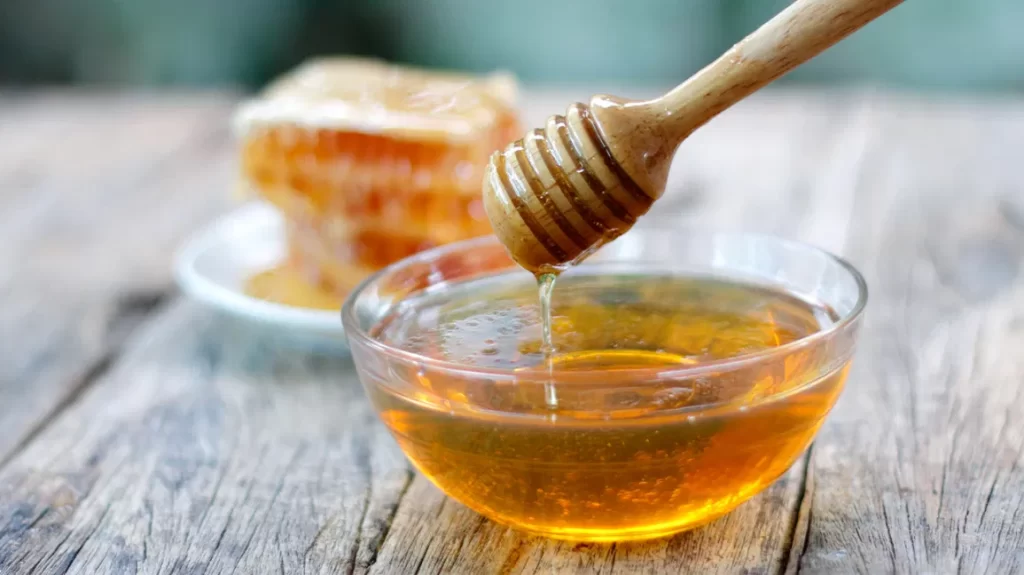
‘Ayeshah Radiyallahu ‘Anha says: “Rasulullah SaIlallahu ‘Alayhi Wasallam loved halva and
honey”.
Commentary
Halva here apparently means anything sweet. Some are of the opinion that it is a special type of halva that is made of sweetmeats and ghee The first person to present halva to Sayyidina Rasulullah Sallallahu ‘Alayhi Wasallam.
was Sayyidina ‘Uthman Radiyallahu. ‘Anhu. Sayyidina Rasulullah Sallallahu ‘Alayhi Wasallam liked it. This halva was made of flour, ghee and honey.
Sugar was not commonly used in those times. Sweetening agents were derived from honey or dates
hadith number 9
Abdullah bin Haarith Radiyallahu’Anhu says.. “We ate roasted meat with Rasulullah Sallallahu
‘Alayhi Wasallam in the masjid”
Commentary
From this we find that it is permissible to eat and drink in the masjid, on condition that the
masjid does not become untidy, otherwise it is makruh to do so. It is possible that this was at the time of i’tikaaf (in Ramadaan).
It was the practice of Sayyidina Rasulullah Sallallahu ‘Alayhi Wasallam to observe i’tikaaf every year, and at that time it is obvious that one eats in the masjid
hadith number 10
Abu Hurayrah Radiyallahu ‘Anhu says: “Meat was sent to Rasulullah Sallallahu ‘Alayhi
Wasallam from someone. From it the forequarter was presented to Rasulullah Sallallahu ‘Alayhi Wasallam. He loved this portion (of the meat too). Rasulullah Sallallahu ‘Alayhi Wasallam tore the meat with his teeth and ate it”.
hadith number 11
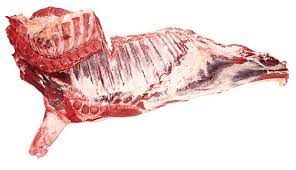
Ibn Mas’ud Radiyallahu ‘Anhu says: “Rasulullah Sallallahu ‘Alayhi Wasallam loved the meat of
the forequarter. Rasulullah Sallallahu ‘Alayhi Wasallam was-given poison in the dhiraa portion of the meat. It is suspected that the Jews poisoned him‘.
Commentary
Aafter -Khaybar was conquered, a Jewess living there, came to know that Sayyidina Rasulullah Sallallahu ‘Alayhi Wasallam loved the dhiraa portion of the meat. She roasted the meat of a goat and mixed a poison in it, and especially put more in the dhiraa part.
She invited Sayyidina Rasulullah Sallallahu ‘Alayhi Wasallam and served the meat. Sayyidina Rasulullah Sallallahu ‘Alayhi Wasallam took a bite but did not swallow it, or may have swallowed a bit of it then spat it out and said.
‘I have been informed by this meat that there is poison in it”, some of the poison affected him. The poisonous effect sometimes became severe, and at the time of his demise it began to take effect again and was the cause of his martyrdom.
In this hadith it is mentioned that the meat itself informed Sayyidina Rasulullah Sallallahu ‘Alayhi Wasallam that there was poison in it. In other narrations it is stated that Jibra’eel ‘Alayhis Salaam informed him of this.
There is no contradiction, is both are possible, first the meat must have informed him as a mu’jizah (miracle), thereafter Jibra’eel ‘Alayhis Salaam came and affirmed it After receiving the information, Sayyidina Rasulullah Sallallahu ‘Alayhi Wasallam stopped eating it and prohibited the Sahaabah Radiyallahu ‘Anhum from eating it too.
Later the woman was called and asked if poison was mixed in the meat? She confessed that she had poisoned the meat.
hadith number 12
Abu ‘Ubayd Radiyallahu ‘Anhu says: “I cooked a pot (food) for Rasulullah Sallallahu ‘Alayhi
Wasallam. Because Rasulullah Sallallahu ‘Alayhi Wasallam loved the dhiraa (forequarter of a
goat or sheep) a lot, I served him that portion. He then ordered another one, I served the ,second one.
He then ordered one again. I replied: ‘Ya Rasulullah (Sallallahu ‘Alayhi Wasallam) the goat
has only two dhiraa’. Rasulullah Sallallahu ‘Alayhi Wasallam then said: ‘I swear an oath by the Name of that Being in whose hands is my life, if you kept quiet, you could have served me every time I requested one”‘.
hadith number 13
Abdullah bin, Ja’far Radiyallahu ‘Anhu says: “Rasulullah Sallallahu ‘Alayhi Wasallam said: ‘The
best meat is that of the back portion’
hadith number 14
Hazrat Anas ibn Malik radiyallahu anhu says, “Rasoolullah sallallahu alaihe wasallam said, ‘The virtue and excellence of Aishah over all other women is like the excellance of thareed over other foods.”
Commentary
The object of Imam Tirmizi in mentioning this narration is to show that Sayyidina Rasoolullah sallallahu alaihe wasallam loved thareed. We gather from different narrations that Sayyidina Rasoolullah sallallahu alaihe wasallam ate thareed regularly.
hadith number 15
Hazrat Anas ibn Malik radiyallahu anhu reports, “Rasoolullah sallallahu alaihe wasallam
celebrated the waleemah of Safiyyah radiyallahu anha with dates and saweeq (sattu).
Commentary
Saweeq (sattu) is a drink made of parched barley. Sayyidatina Safiyyah bint Huyay ibn Akhtab
radiyallahu anha was from a Jewish family and from among the offsprings of Haroon alaihis salaam. In the year AH 7, after the Battle of Khaibar, she was taken as a slave.
Sayyidina Rasoolullah sallallahu alaihe wasallam freed, and married her. Sayyidina Rasoolullah sallallahu alaihe wasallam once said to her, “Your grandfather (Haroon alaihis salaam) was a prophet.
Your (great) uncle (Musa alaihis salaam) was a prophet, and your husband is a prophet.”
The waleemah was made whilst on a journey.
What was served in the waleemah? Different sayings are narrated in the ahaadith. In some, it is narrated that hays, which is a type of sweet dish, was served. In some, cheese is mentioned.
It is apparent that they were on a journey and whatever was available, at breakfast time, in the possession of Sayyidina Rasoolullah sallallahu alaihe wasallam and his close associates, was included in the waleemah. (Waleemah is a feast normally held on the day after the wedding.)
hadith number 16
Hazrat Salma radiyallahu anha says that Hazrat Hasan, Hazrat Abdullah ibn Abbas and Hazrat Abdullah ibn Ja’far Sadiq radiyallahu anhum came to her and said, “Cook for us the food that Rasoolullah sallallahu alaihe wasallam liked and ate with pleasure.”
She replied, “O’ my children, you will not like it now.” (It was only liked in times of hardships.)
They replied, “Of course, we will surely like it.”
She got up and took a bit of barley, (crushed it) and put it in a pot, and poured a little olive oil over it, then crushed some chillies and spices and added it to the pot and served it, saying, “This is what Rasoolullah sallallahu alaihe wasallam loved (and ate with pleasure).”
hadith number 17
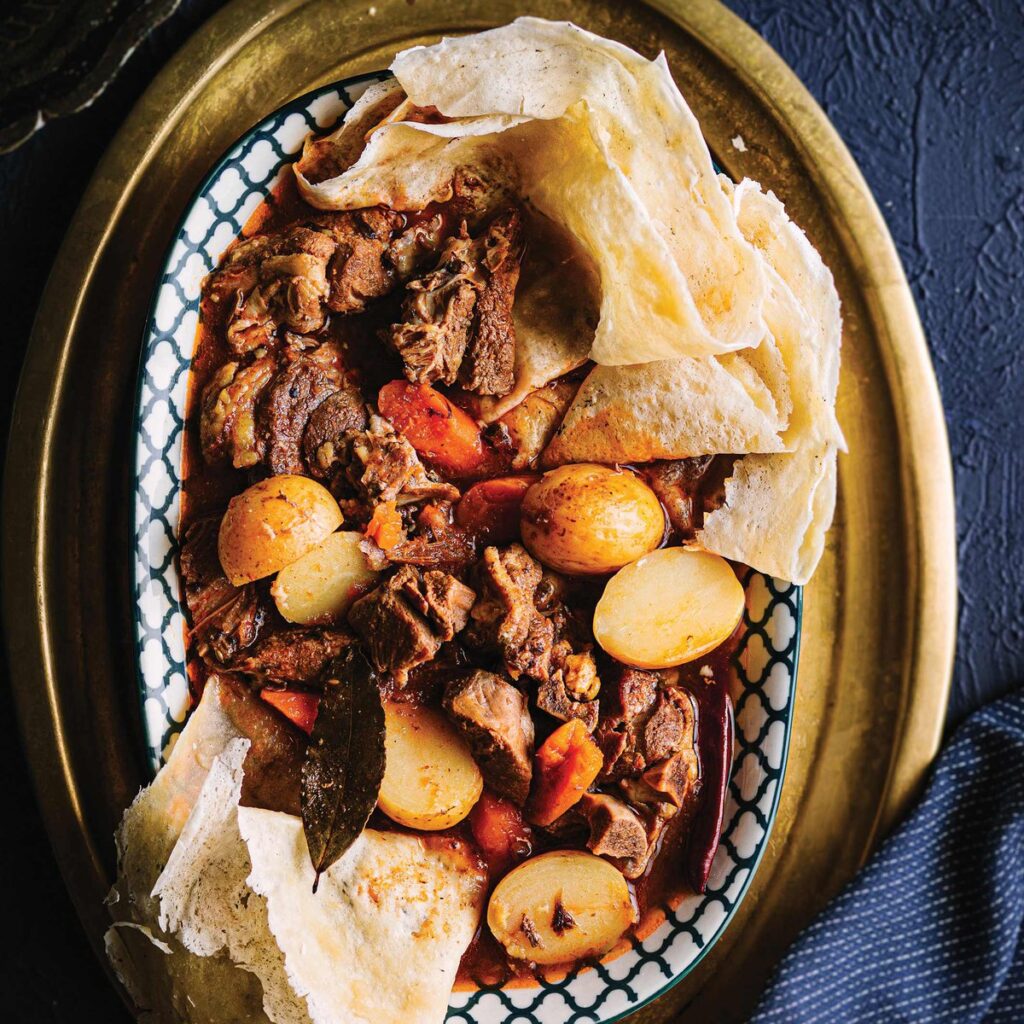
Hazrat Jabir ibn Abdullah radiyallahu anhu says, “Rasoolullah sallallahu alaihe wasallam came to our house. We slaughtered a goat in his honour. Rasoolullah sallallahu alaihe wasallam said, ‘It is as if they knew we adore meat.” (Imam Tirmizi says, “This hadith has a long incident, of which a portion is mentioned breifly here.”)
Commentary
It is said that this is a part of the incident which is mentioned in the books of hadith on the
subject of the Battle of Khandaq, wherein a miracle of Rasoolullah sallallahu alaihe wasallam is also mentioned.
Sayyidina Jabir radiyallahu anhu says, “I saw the sign of hunger on Rasoolullah sallallahu alaihe wasallam. I went home and asked if there was some food. We had a lamb, and
some barley in a bag. I slaughtered the lamb and my wife ground the barley into flour. The meat was put in a pot to cook and I went to Rasoolullah sallallahu alaihe wasallam and quietly said to him, ‘Some food is ready.’ I invited Rasoolullah sallallahu alaihe wasallam and a few companions.
Upon hearing this Rasoolullah sallallahu alaihe wasallam announced to all those present at the trench, who numbered to about a thousand, that there was an invitation at the house of Jabir, and all were invited. Rasoolullah sallallahu alaihe wasallam told me not to remove the pot from the fire and not to prepare the bread till he came.
When Rasoolullah sallallahu alaihe wasallam came, he made damm (prayed then blew) on the pot, as a result there was so much barakah that curry kept on coming out of the pot, and bread was being made from the dough. I swear by Allah that the thousand people ate and went away but the curry kept coming out of the pot, and bread was continuously being made from the dough.”
hadith number 18
Hazrat Umme Munzir radiyallahu anha says, “Rasoolullah sallallahu alaihe wasallam visited me.
Hazrat Ali radiyallahu anhu was with him. We had some bunches of dates hanging. Rasoolullah sallallahu alaihe wasallam began eating from them.
Hazrat Ali radiyallahu anhu also began eating with him. Rasoolullah sallallahu alaihe wasallam stopped him saying, ‘You have just recovered from your illness and should not eat this.’ He (Ali radiyallahu anhu) stopped and Rasoolullah sallallahu alaihe wasallam continued eating.” Hazrat Umme Munzir radiyallahu anha says, “I then cooked some barley and beetroot.
Rasoolullah sallallahu alaihe wasallam said to Hazrat Ali radiyallahu anhu, ‘Eat this, it is suitable for you.”
hadith number 19
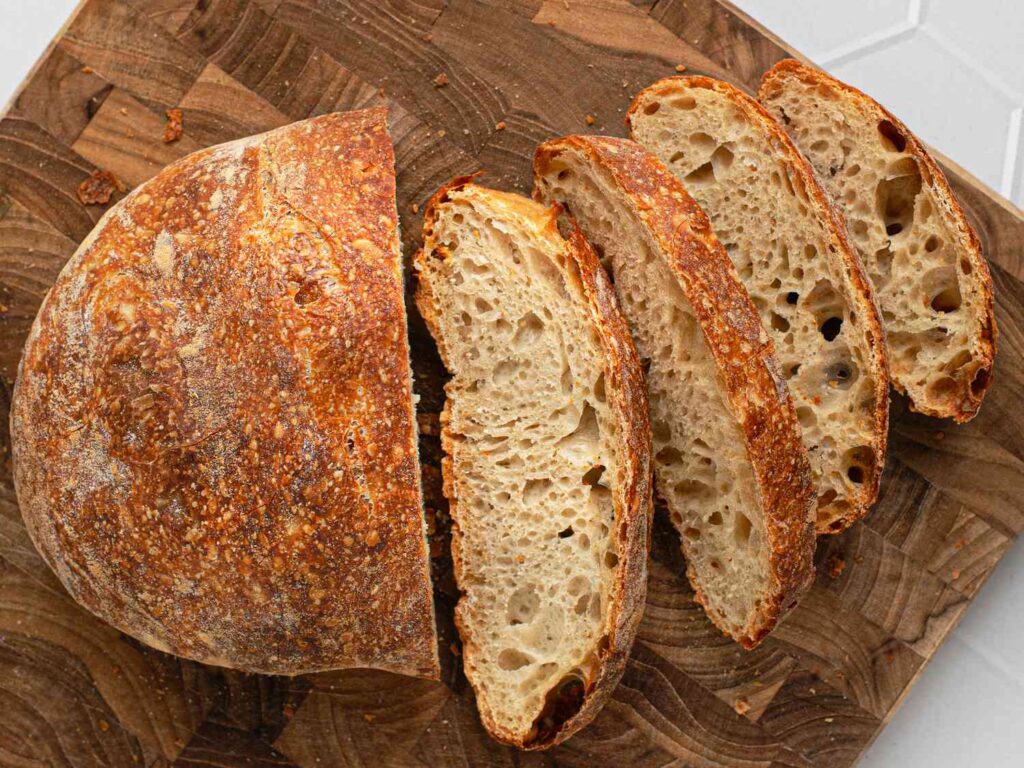
Yusuf ibn Abdullah ibn Salaam says, “I once observed Rasoolullah sallallahu alaihe wasallam
take a piece of bread and put a date on it and say, ‘This (date) is the curry for this (bread).’ He then ate it.”
hadith number 20
Hazrat Anas radiyallahu anhu says, “Rasoolullah sallallahu alaihe wasallam liked to eat the
remains (the food at the bottom).”
Commentary
This is the sign of the complete humbleness of Sayyidina Rasoolullah sallallahu alaihe wasallam.
He first fed others, then chose for himself what was left over. There are many instances in the ahaadith that inform us of this. Some Ulama state that the reason for this is because food at the bottom is less fatty and also digests quickly.
for prophets stories visit https://sunofislam.com/prophetsofgod/
for scientific miracles articles visit www.sunofislam.com
